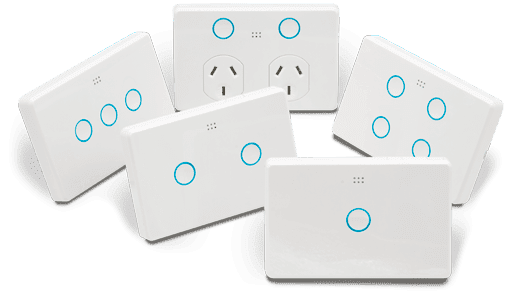
Finding out how much it costs to get your taxes done by a CPA can be confusing. Many people pay different prices for this service. This blog will show you what affects these costs and give tips to lower them.
Keep reading to learn more.
Factors That Influence the Cost of Tax Preparation by a CPA
Geographical location, complexity of tax situation, CPA’s experience and reputation, filing status, and forms required impact the average cost of tax preparation by CPA. These factors play a significant role in determining the fees for professional tax services.
Geographical Location
Where you live can change how much it costs to get your taxes done by a CPA. In big cities, everything often costs more, and that includes tax preparation services. For instance, getting your personal tax return filled out by a CPA can be pricier in New York City or San Francisco compared to smaller towns or rural areas. This is because the cost of living and doing business in these cities is higher..
Complexity of Tax Situation
Moving from one geographical location, the complexity of a tax situation greatly changes CPA fees. A simple tax return might just need basic forms filled out. But for someone with multiple sources of income, investments, or who owns a small business, it gets complex fast.
Owning property in different states or having income from abroad also adds layers. Each extra form or unique situation requires more time and skill from the CPA. The more detailed your finances, the higher the cost can be.
CPAs spend more hours working on these complicated cases. They have to look at various laws and regulations that apply. This thorough work ensures they catch every deduction and credit available to you. It’s this careful attention to detail that often leads people to seek professional help rather than using DIY tax software for complex returns.
CPA’s Experience and Reputation
The cost of tax preparation by a CPA can also rise with their level of experience and reputation. CPAs who are well-known and have a lot of positive reviews often charge more for their services. This is because they bring more expertise to the table, which can mean better advice and bigger savings on your taxes.
Choosing a highly-regarded CPA may cost more upfront, but many people find it pays off. A seasoned professional knows how to navigate tax laws efficiently. They can spot opportunities for deductions or credits that less experienced accountants might miss. So, paying extra for a reputable CPA’s service could lead to larger refunds or lower tax bills in the long run.
Filing Status and Forms Required
Now, let’s talk about filing status and forms required for tax preparation. The types of forms you need to file depend on whether you’re single, married, or have dependents. For example, if you’re a business owner, you may need additional forms like Schedule C or Schedule E.
Your CPA will guide you through which forms are necessary based on your specific situation and filing status, ensuring that all relevant information is properly documented for your tax return.
The complexity of your tax situation also influences the filing status and forms required. If you have diverse income sources or investments, it may necessitate more intricate tax forms than if your financial affairs were less complex.
Therefore, when engaging a CPA for tax preparation services, ensure that they are well-versed in handling filings pertinent to your particular business structure or personal circumstances according to the IRS guidelines.
Average Costs of Tax Preparation Services
The average costs of tax preparation services can vary greatly based on individual and business needs. To find out more about the specific influencing factors and how to reduce these costs, read the full blog.
Personal Tax Return Fees
Understanding the costs associated with CPA-prepared personal tax returns is crucial for planning. The fees can vary based on several factors. Below is a table outlining the typical cost range for personal tax return preparation by a CPA.
| Service | Average Cost Range |
|---|---|
| Basic Tax Return | $220 – $320 |
| Itemized Tax Return | $275 – $500 |
| Additional Schedules or Forms | $50 – $200 per form |
Prices vary based on the complexity of the tax situation. For example, itemized deductions or self-employed income require more work. CPAs may charge more for these services. Filing status, such as single or joint, also affects the price. Keep records organized to potentially lower these costs.
Business Tax Return Fees
Business tax return fees vary widely. Different factors affect the cost. Here is a breakdown:
| Type of Business | Average Cost |
|---|---|
| Sole Proprietorship | $184 to $371 |
| Partnership | $371 to $746 |
| S Corporation | $656 to $825 |
| C Corporation | $800 to $1,200 |
| Non-profit | $700 to $950 |
Costs can go up if your business needs more forms. Extra services also add to the expense. Next, we will look at additional charges for special forms or situations.
Additional Charges for Special Forms or Situations
Certain situations or special forms can add extra charges to your CPA tax preparation bill. Here’s a detailed look:
| Special Form/Situation | Typical Additional Cost |
|---|---|
| Schedule C (Profit or Loss from Business) | $100 – $250 |
| Schedule D (Capital Gains and Losses) | $50 – $150 |
| Schedule E (Rental Property Income and Expenses) | $150 – $300 |
| Form 8962 (Premium Tax Credit) | $50 – $100 |
| Form 1099-MISC (Miscellaneous Income) | $50 – $100 per form |
| Audit Support | $200 – $2,000 |
| Responding to IRS Notices | $100 – $750 per hour |
| Amended Returns | $200 – $500 |
Comparing CPA Fees to Other Tax Preparation Options
When comparing CPA fees to other tax preparation options, it’s important to consider factors like the complexity of your tax situation and the level of support you require. Online tax filing services and DIY tax software may offer lower costs but may not provide the same level of expertise and personalized advice as a CPA.
Online Tax Filing Services
Online tax filing services are a cost-effective option for individuals and businesses. These platforms offer various pricing packages to accommodate different needs, with basic filing typically starting at low costs.
Many of these services also provide additional features such as error checks, electronic filing, and access to professional assistance if needed. When compared to the average fees of hiring a CPA for tax preparation, online tax filing services generally come at a fraction of the cost, making them an attractive choice for those seeking affordable and efficient solutions.
These online platforms have gained popularity due to their convenience and user-friendly interfaces that simplify the entire tax preparation process. Furthermore, they often integrate with banking systems and accounting software to streamline data entry.
As technology continues to advance in this realm, online tax filing services constantly evolve, offering tailored experiences towards individual or business requirements while significantly reducing overall costs.
DIY Tax Software
DIY tax software remains a cost-effective choice for many taxpayers, with prices usually ranging from $0 to $120. These programs are easy to use, guiding individuals or businesses through the tax preparation process step by step.
They often include features such as automatic form filling and error checking, making it simpler to file accurate returns without the need for professional assistance. Many DIY tax software options also offer free federal e-filing and some even provide additional support for state taxes at an extra cost. Taxpayers can save money on CPA fees by using these software tools to prepare and file their own taxes accurately.
The popularity of DIY tax software continues to grow, with platforms like TurboTax, H&R Block, and TaxAct dominating the market share. Moreover, DIY tax software eliminates the need for in-person appointments or communication with a CPA, providing convenience along with significant cost savings.
Tips to Reduce Tax Preparation Costs
To reduce tax preparation costs, organize your records in advance. Choose services based on your needs.
Organize Records in Advance
To minimize the cost of tax preparation by a CPA, ensure all your financial records are well-organized before your meeting. Collect necessary documents like W-2 forms, 1099s, receipts for deductible expenses, and any other pertinent financial records. Maintaining well-ordered records can streamline the preparation process and minimize the time the CPA needs to handle your taxes, possibly reducing your overall expenses.
By arranging your records beforehand, you offer the CPA accurate and comprehensive information that enables them to efficiently prepare your tax return. This proactive method can save both you and the CPA time and effort, potentially resulting in cost savings in tax preparation fees.
Choose Services Based on Your Needs
When selecting tax preparation services, take into account your particular requirements. If your tax situation is straightforward, online filing or DIY software may be a cost-effective option. However, for intricate business taxes or specialized forms, it’s essential to rely on a CPA’s expertise. Evaluate the services provided and their applicability to your specific tax needs.
Conclusion
Understanding the average cost of tax preparation by a CPA is crucial for both individuals and businesses. It allows for better financial planning and budgeting. Factors like geographical location, complexity of tax situation, and filing status influence these costs. Comparing CPA fees to other tax preparation options can help in making an informed decision based on needs.
Moreover, organizing records in advance and choosing services wisely can reduce tax preparation costs efficiently. This proactive approach aligns with wise financial management strategies.
Recent Posts
Recent Comments

Variance in Finance: How CFOs Can Leverage Analytics Tools for Informed Decision‑Making

How to Use an Outside IR35 Calculator to Determine Your Status Outside IR35

Retirement Income Strategies Every Investor Should Know

Unlocking Crypto Insights: The Power of a Cryptocurrency Consultant

Why Electricians Recommend Upgrading Old Switches and Lights Today

Variance in Finance: How CFOs Can Leverage Analytics Tools for Informed Decision‑Making

Mastering Event Planning: Finding the Perfect Function Space
